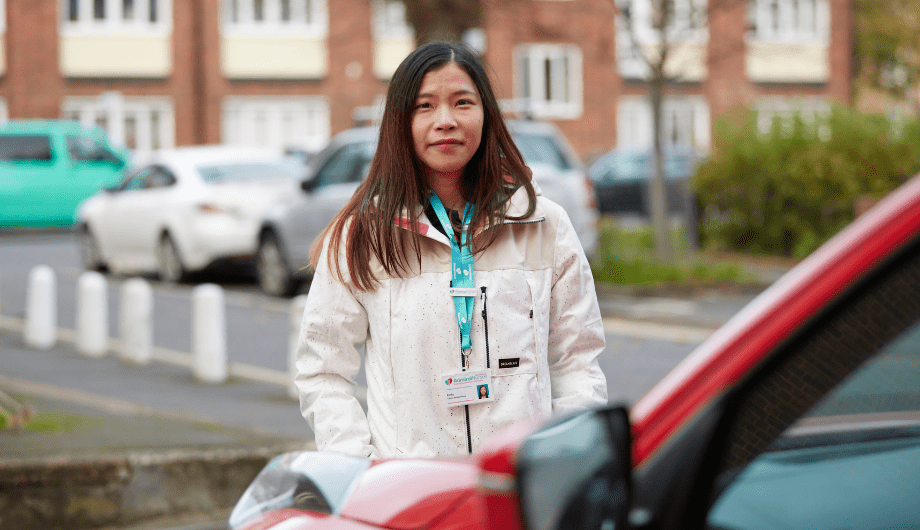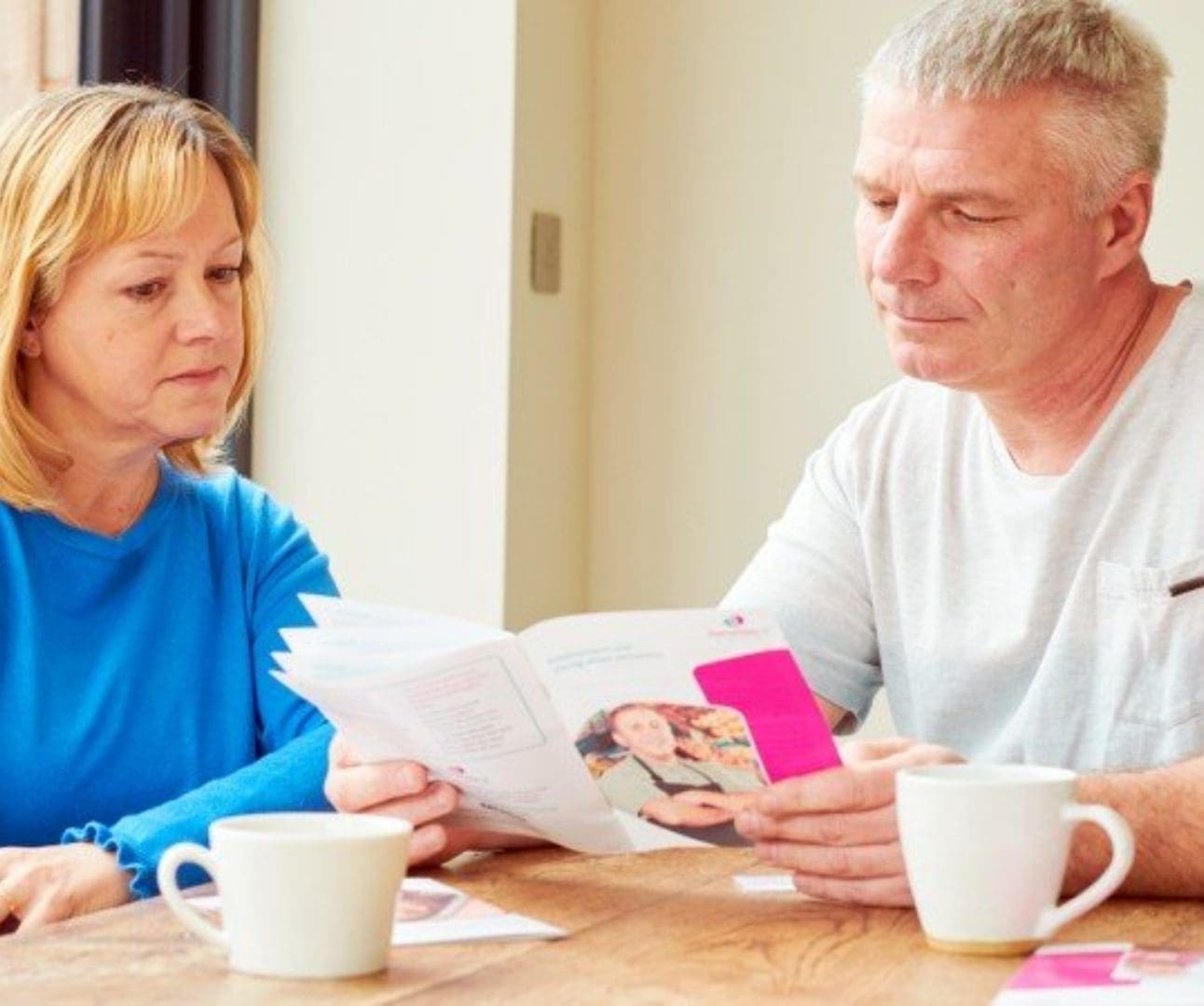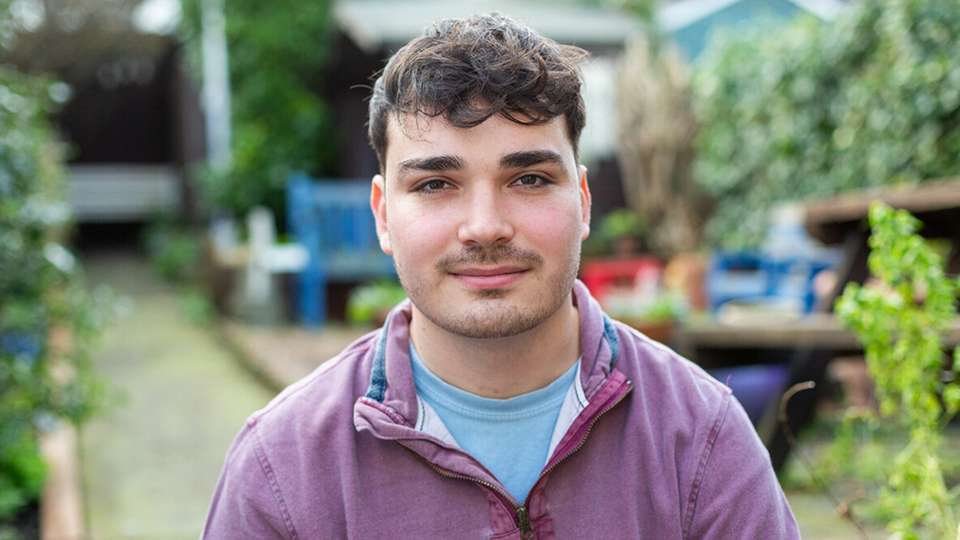
Navigating the pressures of being a young carer
Admiral Nurse Lizzie Harrison provides support strategies for young people caring for someone with dementia.

Two years ago, Dementia UK partnered with the Chinese Welfare Trust to launch a new dementia specialist Admiral Nurse clinic to support Chinese and South-East Asian families. Admiral Nurse Emily Ka-Hei Lui reflects on the pilot service and its early achievements.
I was very grateful to the Chinese Welfare Trust and Dementia UK for developing this brilliant idea. I was proud to take on the role of Clinics Admiral Nurse for the service, a role I continue to enjoy today.
I was involved in setting up the clinic, establishing a clear focus on engaging with diverse communities. Since the launch in 2021, I’ve built relationships with Chinese and South-East Asian community centres, providing clinical support to staff and families. This has also created opportunities to offer drop-in clinics and regular sessions.
One aspect of launching the clinic involved discussing the Chinese term for ‘dementia’ as there are various translations – ranging from ‘dumb and crazy’ to ‘loss of mental capacity/intelligence’ and ‘cognitive disorder’. After consulting with the local community, we chose a term meaning ‘brain degenerative disorder’, replacing the stigmatised terminology with a more respectful and commonly accepted term. Language is such an important part of culturally tailored care.
I’m most proud of making a meaningful change and seeing people value our service as their lifeline. Navigating the dementia pathway is never easy, but I have supported families on this journey. The work is challenging but equally rewarding. We have also raised awareness about dementia and the role of unpaid carers in the communities, and people have shown great interest in the topic. Some have even come forward to volunteer and donate to Dementia UK.
“Personally, I appreciate the there is such a service for dementia carers in Cantonese. It’s amazing. The Admiral Nurse who organises this clinic is very informative, caring and empathetic.” – Kwok-Bong, carer
This role is crucial because dementia often carries a heavy stigma in these communities, making it difficult for families to seek help. They may also feel obliged to care for their parents or partners and often refuse professional help due to cultural values and a sense of duty. My role provides culturally and linguistically sensitive support, helping families access proper care. This ensures that families feel seen, heard, and supported throughout their journey with dementia.
One valuable observation is just how much people’s attitudes can be influenced by their upbringing and cultural background. I’ve learnt not to make assumptions and to truly listen to what each family needs, empowering them in their own care. This daily learning process has been invaluable in providing tailored support.
“Emily not only offered guidance but reassured and understood the burdens of caregiving, providing a sense of empathy that is often hard to find. Her ability to communicate in our language and understand cultural nuances deepened our connection. The community of caregivers she facilitated provided tremendous support, allowing us to learn from and mutually support each other.” – Lai-Yee, carer
My grandma lived with mixed dementia, and I witnessed first-hand the challenges and emotional impact it had on her and our family. At the time, we knew very little about dementia and feared she would only become more depressed and frail. But we worked hard to provide support, and she enjoyed engaging in stimulating activities during our visits, such as listening to Chinese operas, reminiscing with old photos, and making dumplings and festive food together. My experience with Grandma strengthened my belief that receiving a dementia diagnosis is not the end, and that care can truly change lives.
The Chinese Welfare Trust Admiral Nurse clinic is available to families who are residing in, registered with a GP in, or a member of one of the Chinese Welfare Trust’s local community partners in the London boroughs of Barnet, Brent, Camden, Tower Hamlets, and Westminster. To find out if you meet the referral criteria for the clinic, please call 020 3870 9350 or email CWTANclinic@dementiauk.org.

Admiral Nurse Lizzie Harrison provides support strategies for young people caring for someone with dementia.

Information and resources about young onset dementia, where symptoms develop before the age of 65.

When Elliott’s father was diagnosed with young onset Alzheimer’s disease in his fifties, family life was changed forever.